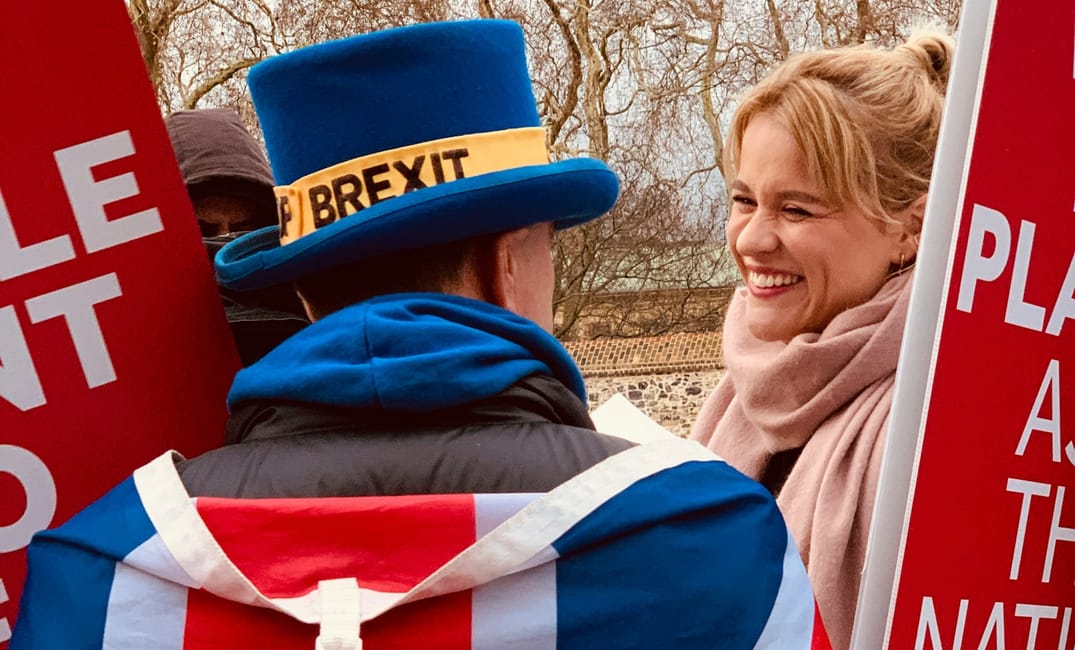A Brexit Carol
Steven Spencer
Naked Politics Blogger
As the debate on the withdrawal agreement and political declaration occupies the Commons for five days, and the government reels from no less than three defeats in a day, the question being asked by many is, how did we get here?
To understand the Brexit present, we must look to the ‘Ghost of Brexit Past’. Tempting as it would be to re-run the arguments of entering the EEC, we will limit ourselves to Maastricht as a starting point. The ability of a beleaguered John Major, selected as the ‘peace’ candidate by a fractured Conservative and Union Party, to pass through parliament what was a fundamental change to the level of European integration, has been lauded. But, in many ways, by overcoming the divisions and ‘bastards’, he sowed the seeds of the current crisis, in effect delaying the ‘battle royale’ until a later date; today.

Narrowly passing Maastricht, with no proper popular mandate, did not reconcile the Eurosceptics and Europhiles in the Conservative Party into a contented one, nor did it leave the electorate satisfied that they had had their say on such an important change. This was compounded by the fact that many of the effects of Maastricht only emerged over time, leaving the public to wonder when they had said ‘yes’ to each consequence, and the two sides of the Conservatives awaiting their chance for a final ‘victory’.
Blair’s acceptance of unfettered migration built on Maastricht, effectively set low paid and ‘low skilled’ migrants and UK citizens against each other, within an economy that was skewed to the south east, lacked real replacements for lost manufacturing jobs in the north and was increasingly dependent on retail purchases (fuelled by growing cheap consumer credit). This is not to mention the sale of exported services, both of which are vulnerable to a recession, and so it proved in 2008.
Finally, for the past, we must consider the Cameron Government, in which a weakened Tory party were enabled in their infighting by Lib Dem support, whilst UKIP espied an opportunity to push their ‘leave Europe’ hobby horse. Cameron’s rash response of promising an ‘in or out’ referendum showed how confident he was of losing the 2015 election; as the Now Show said at the time, Cameron must have awoken the next day and screamed, “No!”. He was wedded by mandate to an ‘in or out’ referendum and faced a UKIP riding high in the polls. The Eurosceptics felt emboldened and so the stage was set for ‘Brexit Present’.
Some dates mark the start of something entirely new and June 23rd, 2016 was such a day. The British public, for so many reasons, rejected the political establishment and demanded an exit from the EU; Cameron’s had overplayed his hand, ‘Brexit Present’ began. There followed an inevitable sequence of events that have led to today. The divided Conservatives had to elect a ‘peace’ candidate as leader, then to satisfy Brexiteers, had to appear to be tough with the EU. The Prime Minister had to try to reconcile both sides and at the end of it all, a general election was the only answer open to Theresa May if she was to overcome her small majority and the lack of a popular mandate to govern.
The hung parliament left May’s government limping on, propped up by the self-interested DUP and facing a united EU. The withdrawal deal was doomed to be so compromised, formed as it was in this melee of conflicting interests, that it would never be able to pass through the Commons. One might analogise that the 2017 election sent the car of Brexit skidding on an icy road towards the wall of parliament – when and where it would hit were the only questions, not if.
 As Parliament fills the vacuum left by a government that cannot maintain the unholy alliance between Legislature and the Executive that is demanded by our unique constitution, power is being wrestled from those charged with governing. History tells us that this situation cannot and will not last for long.
As Parliament fills the vacuum left by a government that cannot maintain the unholy alliance between Legislature and the Executive that is demanded by our unique constitution, power is being wrestled from those charged with governing. History tells us that this situation cannot and will not last for long.
The ‘Ghost of Brexit Yet To Come’ holds two possibilities. On December 11th this new chapter begins and may herald a newly awakened Conservative Government and Party, terrified by the three spirits, proclaiming unity and a new approach to coalesce and march away from the abyss. It would take a bold gambler to have a seasonal flutter on this outcome. More likely, he or she would place an ‘each way’ bet on change; a release of pressure to change the status quo and extract the country from the hole it has thrown itself into. A Corbyn Government? Perhaps, after all, who, before the European elections of 2014 would have guessed all that has followed?
At the end of a Christmas Carol, a chastened Scrooge put right his decades of misdeeds and persuaded even the most hardened cynic that he had learned to keep the true spirit of Christmas in his heart. Perhaps the ‘Ghost of Brexit Yet to Come’ is more likely to realise his visions than was the tormentor of Scrooge.

